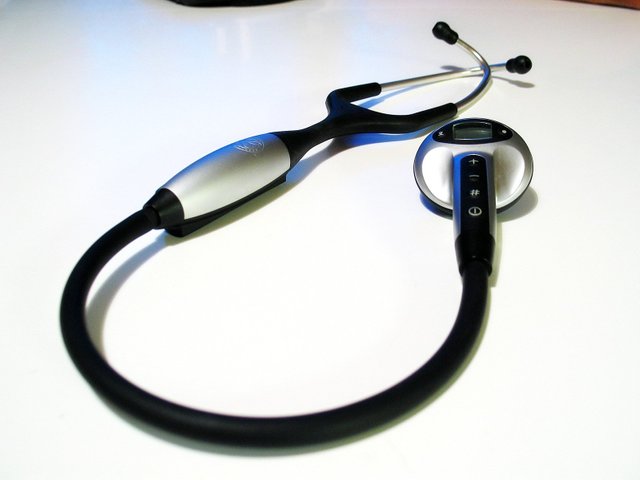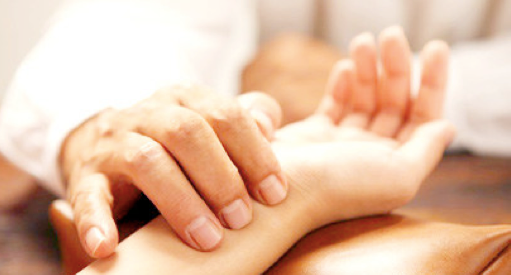Pulse and pulse pressure with regards to traditional Chinese medicine

Pulse is the measurement of the rate at which blood flows at a certain point over time. Meaning the rate at which blood is pushed through the artery. it can also be used to find out how many beats per min the heart beats to pump blood through the body. The reason why I say "can also" is because we all know of the traditional general knowledge that pulse is taken to find out heart rate, But what we don't know is that in Traditional Chinese Medicine pulse can be used to find out more than just heart rate.
pulse taking gives important information of condition of qi , blood and internal organs.The pulse of cunkou is measured by 3 fingers in the area at which we traditionally find the pulse of a person which is located on the wrist. Each hand has a different relation to organs which is explained in the table below.
How to feel the pulse

Put fingers on the pulse
Index finger -- cun
Middle finger--guan
Ring finger--chi
Cun: the front section
Guan: cubital crease-bony eminence, the middle section
Chi: the proximal section

So what do we look for when we feel pulse pressure? Let us start by knowing what is the normal pulse pressure and what to look for when feeling a pulse.
Normal pulse
Depth: Neither floating nor sinking
Volume: Neither large nor small
Strength ,tension: Moderate tension and force
Rate, rhythm: 4-5 beats to one cycle of the physician’s respiration
You may be asking what the fudge is a floating pulse and sinking pulse and how do we notice these differences in pulse. well let's dive right into it.
Floating pulse:
-Can be felt with a light touch
-Indicates exterior syndrome, acute disease
Deep pulse:
-Can be felt with pressing hard
-Indicates interior syndrome, chronic disease
Slow pulse:
- Less than 4 beats to one cycle of the physician’s respiration
- Indicates deficience of qi ,cold syndrome
Rapid pulse:
-More than 5 beats
- Indicates heat syndrome
Feeble pulse: Feel feeble
-Indicates deficiency of qi and blood
Forceful pulse: Feel vigorous and forceful
-Indicates excess syndrome
Slippery pulse: Feels like beads rolling on a plate
-Indicates phlegm, dampness, over food
-Indicates pregnancy
Taut pulse: like string
-Indicates liver disease ,hypertension,etc.
Thank you for taking the time to read my post, please upvote and or comment with your thoughts and suggestions. Next blog should be about facial colour and what each indicates.